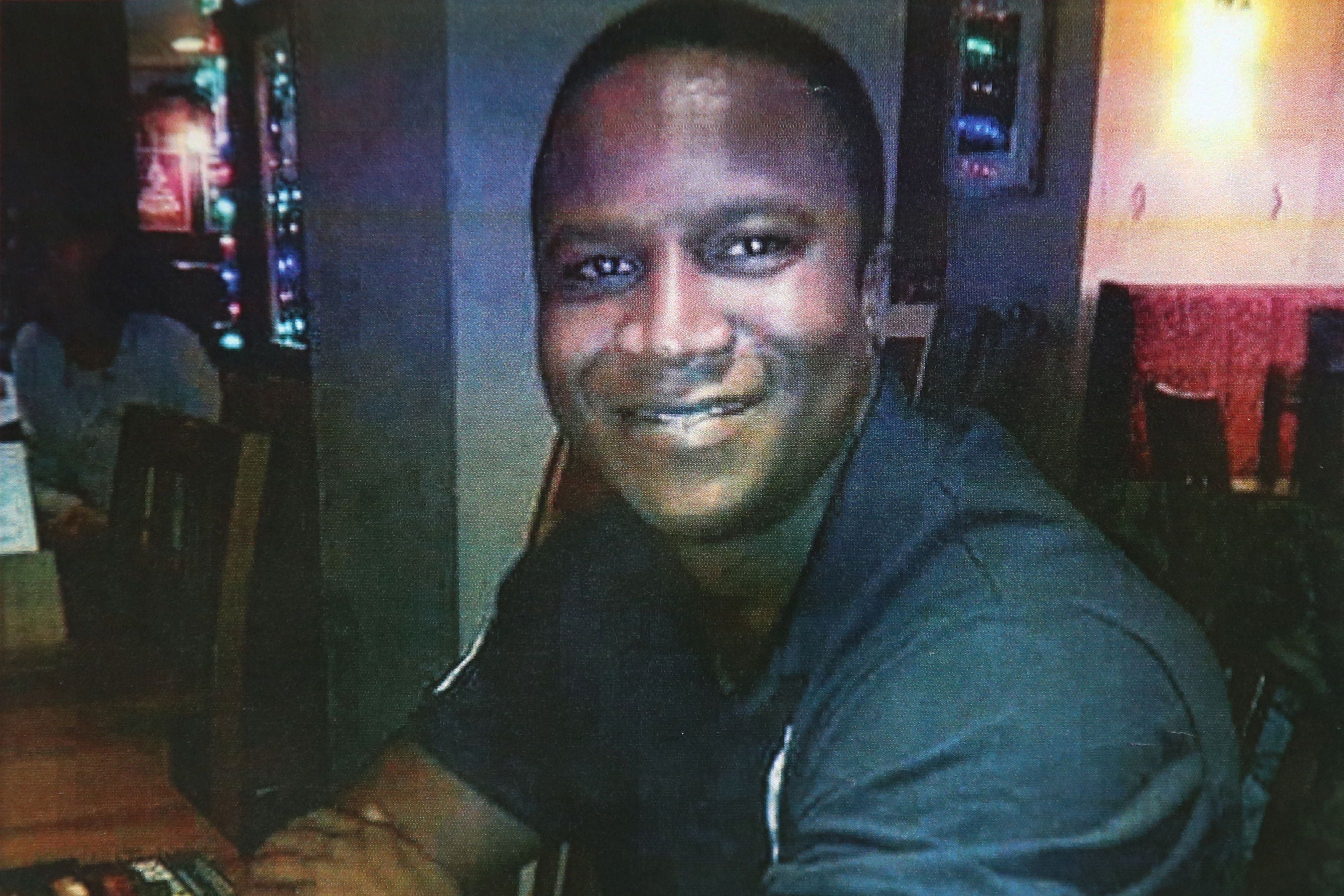Ex-Crown Office chief was concerned police were at Bayoh post-mortem exam
Sheku Bayoh, 31, died after he was restrained on the ground by six police officers in Kirkcaldy, Fife, on May 3 2015.

The former head of the Crown Office unit which oversaw the investigation into Sheku Bayoh’s death has told an inquiry of his concerns that police were present at the post-mortem examination when officers were potentially being investigated.
Les Brown, who was head of the Crown Office Criminal Allegations Against the Police division (CAPD) at the time of Mr Bayoh’s death, said the fact that officers were present risked compromising the independence of any investigation into police involvement before his death.
He also said it was concerning to hear that information from the examination was shared with the officers who had attended the incident before they had given statements about the events.
Mr Bayoh, 31, a father-of-two, died after he was restrained on the ground by six police officers in Kirkcaldy, Fife, on May 3 2015.
On Wednesday, the Sheku Bayoh inquiry heard that at the time of the post-mortem examination on May 4 2015, police were in charge of investigating the events leading up to Mr Bayoh’s arrival at Hayfield Road where he was restrained, and the Police Investigations and Review Commissioner (Pirc) was in charge of investigating the cause of death.
The following day, the Crown Office instructed Pirc to take over investigating the whole incident including the events leading up to what happened at Hayfield Road.
Angela Grahame KC, lead counsel to the inquiry, asked Mr Brown about the presence of the police at the examination and said “Do you have any concerns about that?”
He said he would have concerns that there should be no organisational or hierarchical connection between the investigators and those being investigated.
He said: “I think there is a potential risk in relation to how that would square with those who the organisation, which is itself being potentially investigated and its members are being potentially investigated, being present during the early stages of an investigation, where important information that relates to obviously the cause of death and how that might relate to how that cause of death came about.
“There is a risk that that would be compromised, that independence would be compromised.”
Ms Grahame said the inquiry has also heard evidence that following the examination, information that blunt force trauma to the head had not been the cause of death was later shared with the officers who had attended Hayfield Road, who at that stage had not yet given statements.
The inquiry heard that permission was not sought from the Crown for the sharing of the information.
Mr Brown said he would have concerns about that as there would be a risk that the provision of information could affect the approach to the giving of statements and, in particular, the information contained in those statements.
Ms Grahame asked whether independence was a concern in relation to information from the pathologist being shared with officers after Pirc authorised it.
He replied: “Yes, I think always great care has to be taken in the sharing of any evidential information during the whole of an inquiry but, particularly, in the early stages where it has the potential to affect critical stages of it and one critical stage would clearly be the provision of statements, the accuracy of those and whether they have been affected by any information that has been provided where it shouldn’t have been provided.”
The inquiry also heard that the information from the post-mortem examination was shared with the officers before it was shared with Mr Bayoh’s family.
Mr Brown, who is now procurator fiscal for south Strathclyde, said he was concerned about this and that those who are bereaved are entitled to learn of significant information in advance of others.
The inquiry is examining the circumstances leading to Mr Bayoh’s death, how police dealt with the aftermath, the investigation into his death, and whether or not race was a factor.
The inquiry continues before Lord Bracadale in Edinburgh.
Bookmark popover
Removed from bookmarks